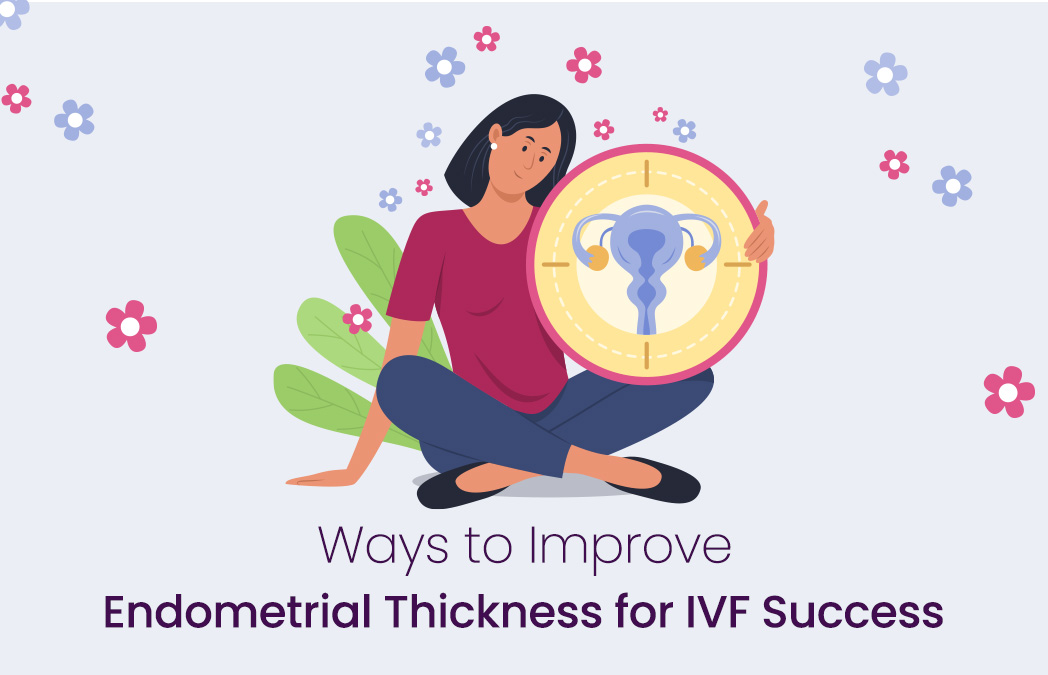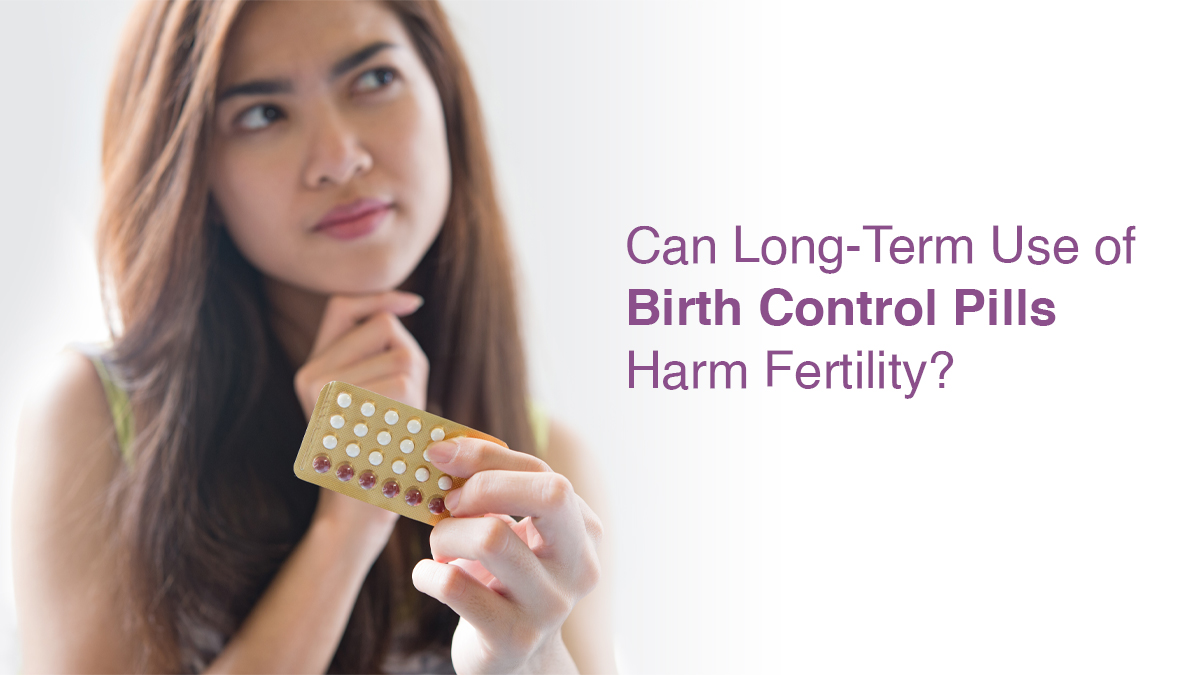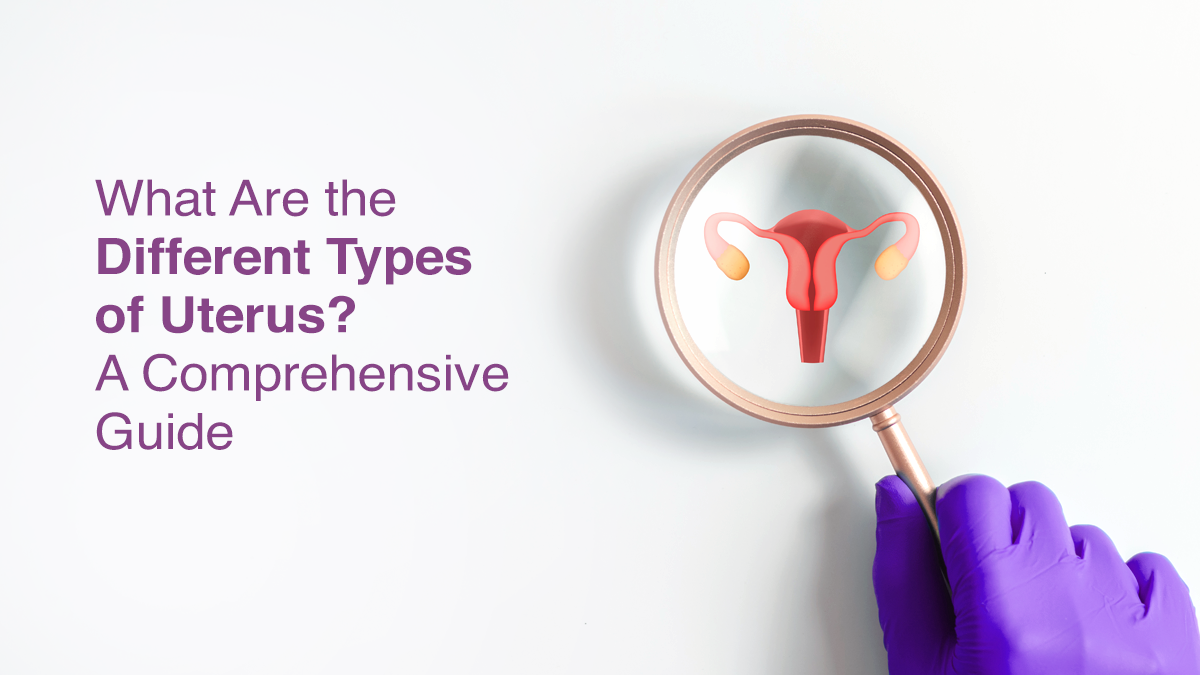
Ways to Improve Endometrial Thickness for IVF Success

The journey toward parenthood through in-vitro fertilization (IVF) is an emotional rollercoaster. You may feel hopeful, anxious, excited, and uncertain. One of the crucial elements influencing the success of IVF is the thickness of the endometrial lining. This lining must be thick enough for the embryo to implant successfully. Learning how to enhance the thickness of this lining can help your IVF cycle succeed. This guide shows ways to increase your uterus lining thickness.
What is the Uterus Lining and Endometrial Thickness?
The endometrium is the mucous lining inside the uterus. This lining changes during your monthly cycle due to fluctuations in the hormone levels. During the embryo transfer process in IVF, the lining must be thick enough for the embryo to implant. Usually, an endometrial thickness of 7-14 mm is considered ideal for the success of the IVF procedure. A thin endometrium lining under 7 mm may not allow the embryo to implant properly. This could affect the chances of successful pregnancy from the IVF cycle.
Factors That Affect Endometrial Thickness
There are some reasons why the lining of your uterus could become thin:
- Hormone Problems: Diseases like polycystic ovary syndrome (PCOS) can cause hormonal imbalance, affecting how thick the uterus lining grows.
- Health Issues: Conditions like Asherman’s syndrome may cause scarring in the uterus, making the lining thinner.
- Uterus Surgeries: Procedures like dilation and curettage (D&C) can sometimes damage the lining and make it thinner.
Ways to Make Your Uterus Lining Thicker
Endometrial thickness can be influenced by medical treatment, nutrition, and certain lifestyle measures. Here are the commonly recommended approaches used to support healthy uterine lining development before IVF.
1. Eating the Right Foods to Increase Endometrial Thickness
Following a healthy, balanced diet is important for a thick uterus lining:
- Antioxidants: Fruits and vegetables rich in antioxidants can promote cell health, potentially aiding the growth of the endometrium.
- Omega-3 Fatty Acids: Found in fish, nuts, and seeds, omega-3 fatty acids are known for their anti-inflammatory properties, which can be beneficial for reproductive health.
- Vitamins and Minerals: Specific nutrients like vitamin D, folic acid, and iron are linked to reproductive health. Leafy greens, whole grains, and lean meats can provide these nutrients.
2. Lifestyle Changes
Adopting certain lifestyle changes can positively impact overall reproductive health:
- Exercise: Regular moderate exercise enhances blood circulation, potentially improving uterine health.
- Stress Reduction: High-stress levels can interfere with hormonal balance. Practicing mindfulness, yoga, or meditation can aid in stress reduction.
- Avoid Smoking and Alcohol: Excessive smoking and alcohol intake can adversely affect reproductive health and should be avoided.
3. Medical Treatments
In some cases, medical interventions might be required:
- Hormonal Therapy: Progesterone and estrogen therapy can sometimes help in thickening the endometrial lining.
- Blood Flow Enhancement: Some treatments aim to improve uterine blood flow, which can support a thicker endometrium.
- Platelet-Rich Plasma Therapy: PRP therapy is being explored as a method to enhance endometrial growth.
It is important to note that medical treatments should be personalized and guided by a healthcare professional based on individual needs.
4. Supplements
Certain supplements such as Vitamin E may be beneficial for endometrial growth. However, before taking any supplements, it is very important to consult with your doctor.
Importance of Monitoring and Professional Guidance
Regularly checking the endometrium thickness is essential during fertility treatments. This allows adjustments to be made as needed. Working closely with a fertility expert ensures any approach taken fits your specific needs. This improves your chances of success with IVF.
Wrapping It Up
Having a thick enough uterus lining is vital for the embryo to properly implant during IVF. A well-rounded approach can help thicken the lining. This includes proper nutrition, lifestyle changes, medical treatments, and supplements. However, individual assessment and guidance from a professional remains key to achieving the best possible outcome during the embryo transfer process.


fill up the form to get a
Free Consultation
Avail 0% interest on EMI
All Procedures | No Upper Limit
Frequently Asked Questions
What happens if the uterus lining is too thick?
What should you do when your endometrial thickness is not normal?
What endometrial thickness do you need to get pregnant?
What does endometrial thickness mean on day 11 of your cycle?
How does endometrial thickness change before and after ovulation?
Can I get pregnant when my endometrial lining is 7mm thick?
Can a very thick endometrial lining make it hard to get pregnant?
How we reviewed this article:
- Current Version
- January 23, 2025 by Oasis Fertility
- July 26, 2024 by Oasis Fertility
- May 21, 2024 by Oasis Fertility





